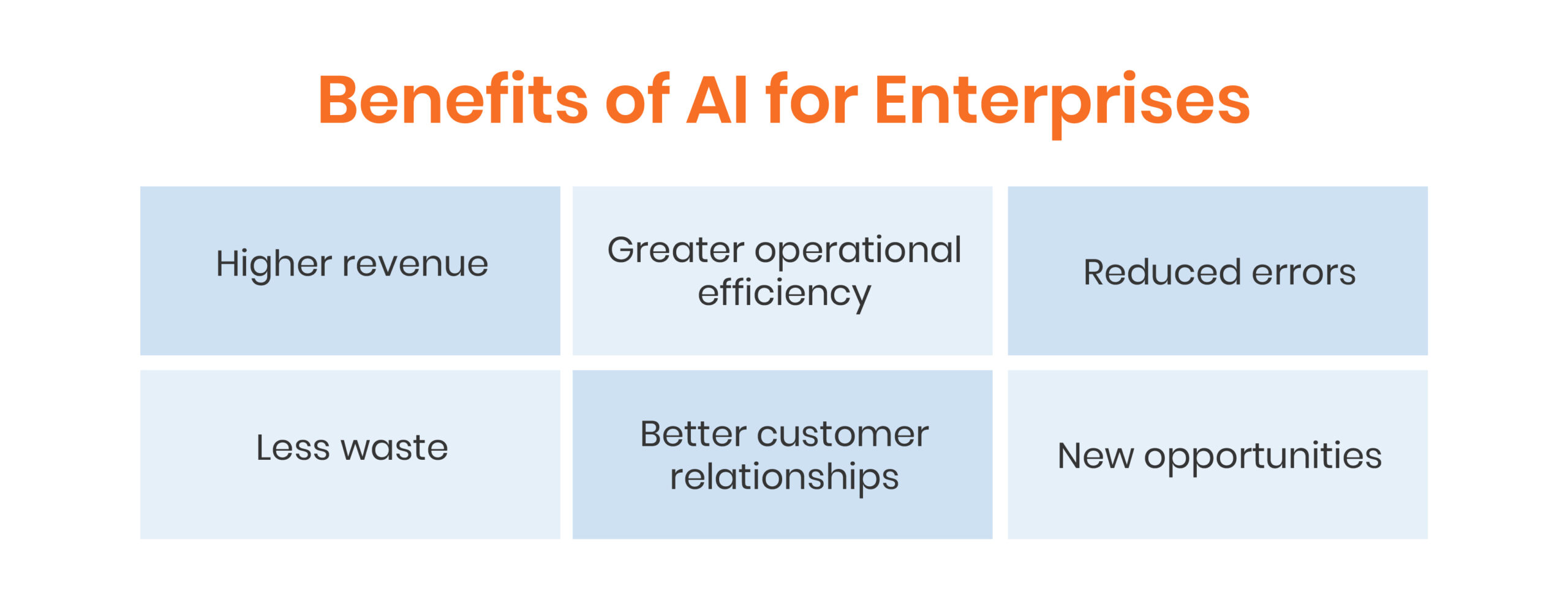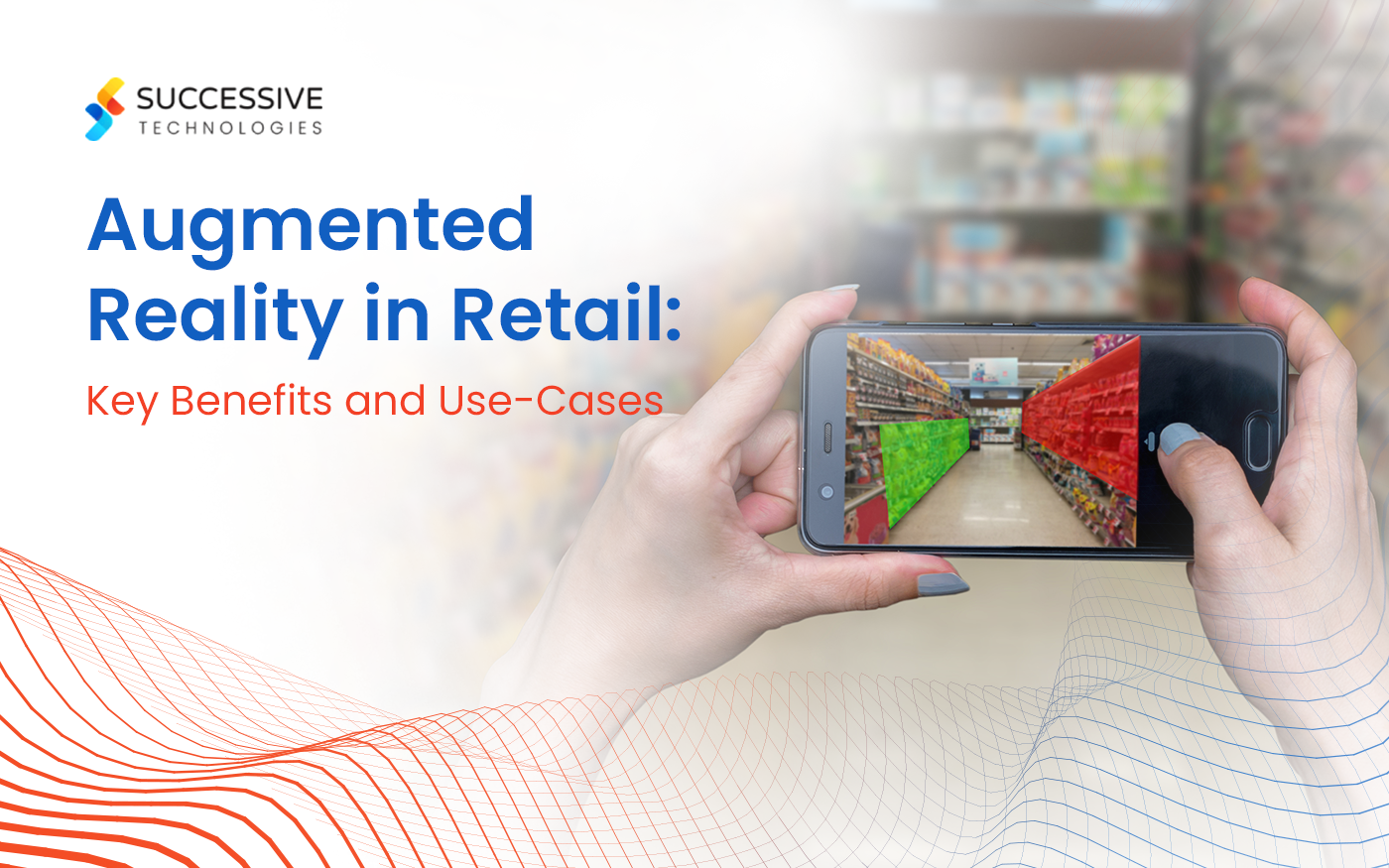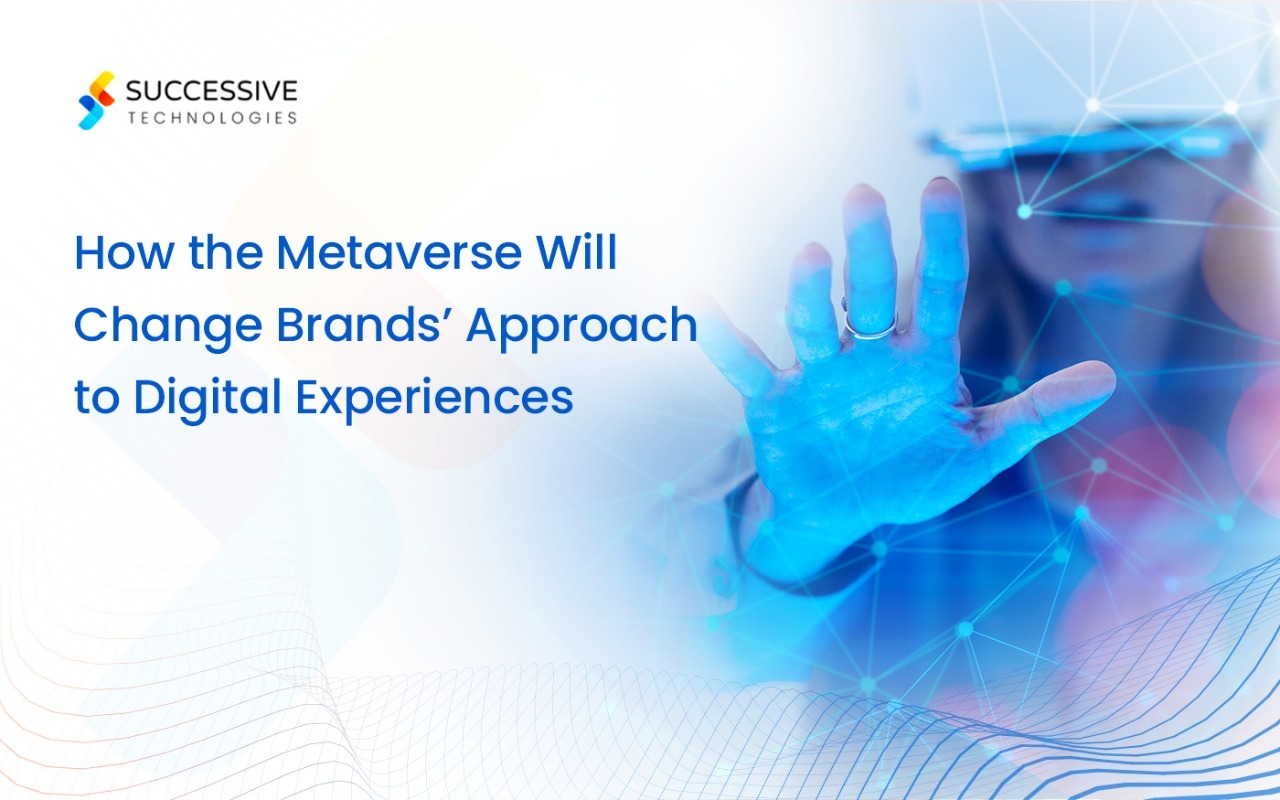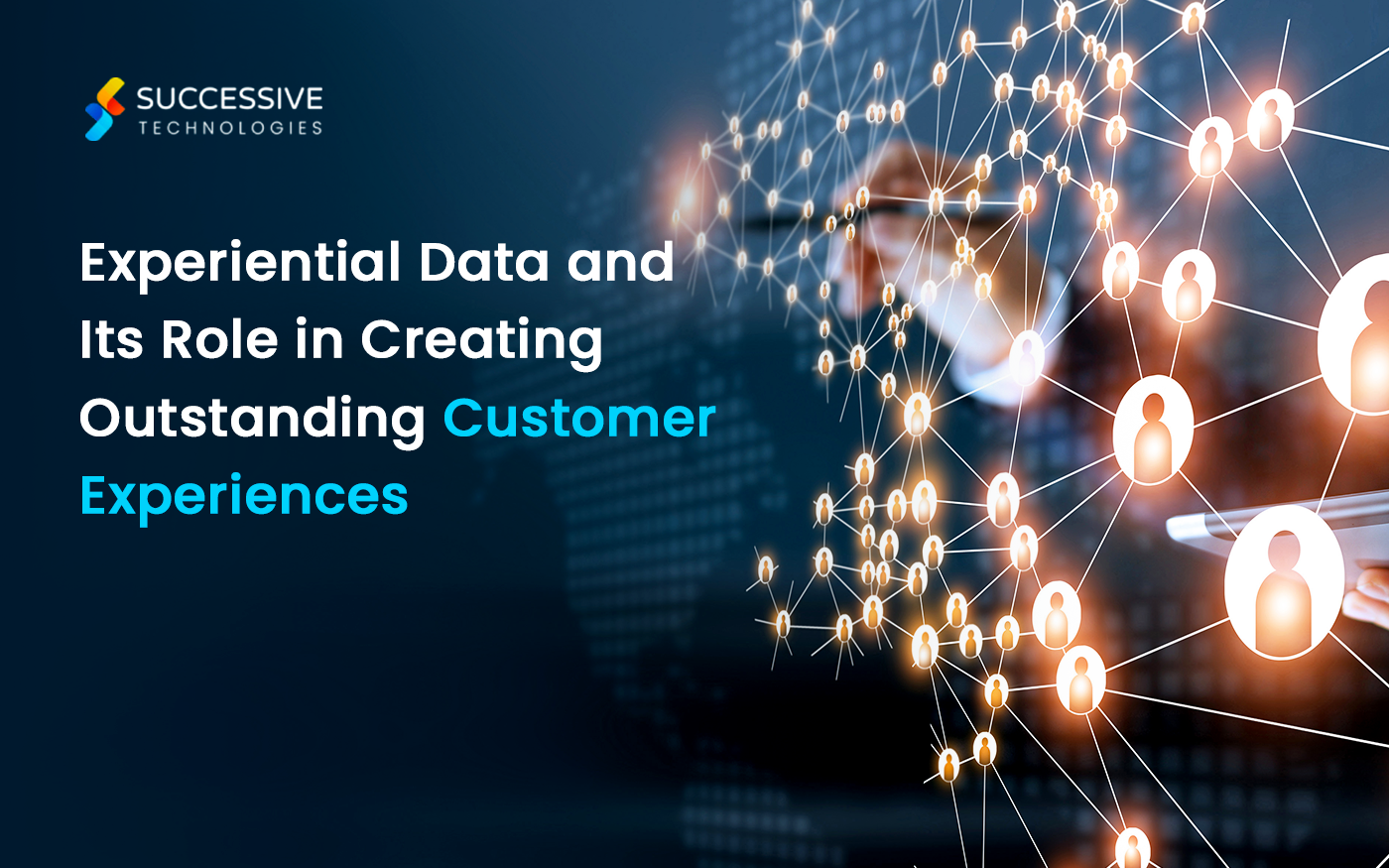Artificial intelligence (AI) is no longer a good-to-have. Organizations across the globe are finding that AI provides them with a significant competitive edge.
Because of this, AI adoption is growing at a meteoric pace. As enterprises turn their attention towards digital transformation, many are finding that AI needs to be a central part of their journey.
One of the industries that can benefit tremendously through the implementation of AI is retail and consumer business. A 2020 McKinsey study named seven imperatives for the retail industry, all of which can be supported by AI in one way or another. Whether it’s consumer demand prediction, inventory management, supply chain management or marketing, the retail industry is set to benefit from AI even more than other industries do.
So, what are some of the things that AI can do for the retail and consumer products industry? Let’s find out.
What AI can do for consumer businesses and associated functions
Broadly, AI can support three retail and consumer business requirements: automation, data analysis, and customer engagement. It can proactively identify and evaluate business opportunities, assess risk, and develop strategic responses.
Let’s explore how AI can be deployed in offline and online retail and consumer businesses to add value across the value chain.
Brick and mortar retail
When thinking about consumer AI, what comes to mind first is digital use cases. However, AI is rapidly revolutionizing traditional brick and mortar retail stores as well.
For brick and mortar businesses, a type of AI deep learning called computer vision is gaining popularity. Computer vision interprets visual data and opens up new opportunities across different parts of a business.
Retail business owners can deploy AI deep learning and computer vision to:
- Check product availability for quick replenishment, through smart shelves
- Offer kiosks for customers to check product availability and explore cross-selling and upselling opportunities
- Set up smart self-checkout systems with integrated video analytics
- Understand customer engagement and interest through intelligent display ads
- Forecast demand, make pricing decisions and optimize product placement

Many retail businesses are already leveraging AI to improve customer experience. H&M uses AI to analyze store receipts and returns to evaluate the popularity of different items in its inventory. Zara uses AI-powered robots to streamline in-store order pickups. Walmart has also deployed shelf-scanning robots for inventory management, while Uniqlo uses AI-powered UMood kiosks for product recommendations.
Read How Retailers Can Overcome Their Biggest Challenges Today
Ecommerce
The applications of AI in ecommerce are plenty, and online retailers stand to gain a lot by investing in these technologies and algorithms. AI in ecommerce can be used to:
- Develop personal virtual shopping assistants
- Facilitate personalization across multiple digital devices
- Retarget potential customers and identify exceptional conversion prospects
- Generate sales through wearable technology
- Create customer-centric search and recommendations
Many ecommerce businesses are already using AI to help improve customer experience. Amazon uses AI to enable voice shopping and product recommendations for customers. Alibaba uses AI for content creation and product recommendations for customers. And eBay uses AI to provide customer recommendations and shopping advice.
Now, let’s also look at how AI can help with different business functions within these industries.
Sales and marketing
As per a 2019 McKinsey study, one of the two areas where AI will be of greatest value is sales and marketing. AI can help salespersons and marketers:
- Create predictive models and algorithms to set prices and forecast demand
- Facilitate decision-making based on analysis of large databases
- Create automated and accurate sales projections based on client interactions and historical data
- Rank and prioritize leads based on their conversion probability
- Scan social media to protect brand reputation
- Help in personalization of website experience, notifications, and SEO
AI can also help with translating marketing and sales materials into different languages, allowing sales and marketing professionals to reach a wider audience.
Operations and supply chain management
According to the previously quoted McKinsey study, the other area where AI will be of greatest value will be operations and supply chain management. Here, AI can be used to:
- Monitor data points to identify, assess, and mitigate high-risk operational situations
- Ensure quality control by assessing product authenticity in production
- Create optimized network plans for ground and air fleets to optimize operational efficiency
- Effectively manage the supply chain through analysis of the movement of goods

Optimizing their supply chain network and operations can help businesses to eliminate inefficiencies, reduce costs, improve customer experience, and increase their sales.
Customer support
For businesses, being prepared for every user query and product use case matters. After all, if a company’s customer service is excellent, 78 percent of consumers will do business with a company again after an error.
AI-powered customer service solutions can become the key to great customer support and, consequently, strong customer loyalty. AI can:
- Be integrated into chatbots and voicebots to personalize customer experience
- Store answers to customer questions, recognize trends in commonly asked questions and reduce overall wait time
- Leverage information from CRM solutions, highlight key customer information and make it accessible to agents for enhanced customer engagement
- Use sentiment analysis to improve customer conversations and address queries
IBM’s Watson AI assistant is an example of a full-service AI chatbot that integrates with businesses’ CRMs and serves as an effective customer support tool, delivering a 337 percent return on investment (ROI).
Read Enhance Your Business Performance with AI Chatbots
What enterprises stand to gain from AI
AI presents an enormous opportunity for enterprises to innovate and achieve their business goals. Here are some of the advantages it offers.  Increase revenue: Using AI, enterprises can deliver targeted product recommendations, create new cross-selling and upselling opportunities, and optimize pricing to close sales faster and maximize revenue
Increase revenue: Using AI, enterprises can deliver targeted product recommendations, create new cross-selling and upselling opportunities, and optimize pricing to close sales faster and maximize revenue
Reduce costs: Enterprises can automate repetitive manual tasks, eliminate costly mistakes with streamlined processes, and analyze data for operational insights to maximize efficiency and reduce costs
Minimize waste: AI enables enterprises to analyze demand patterns, improve sales forecasts, and optimize inventory, pricing and delivery routes through the analysis of past and present data
Build customer loyalty: AI allows enterprises to offer proactive support, make recommendations based on customer preferences, provide instant product assistance, and take swift action to resolve issues
Create new opportunities: With AI, enterprises can better understand customer purchase patterns, improve competitive intelligence by analyzing potential competitors, and visualize data to explore new opportunities
The use cases are endless, and the possibilities are only growing as AI’s capabilities expand. The AI advantage is here to stay, so it’s time for the consumer product sector to up its game and start exploring how AI can be utilized to boost the bottom line.
AI is the future of consumer business
AI adoption is emerging as a must for businesses, with 75 percent of executives fearing going bust within five years if they don’t scale the technology. However, for enterprises to stay abreast and reap the most from AI, it’s important for them to be committed to learning and building their skills in AI and its applications.
Consumer businesses — offline or online — can deploy AI in myriads of ways and stand to gain increased ROI and customer loyalty through the implementation of these technologies in their business processes. As a result, AI will eventually become a must-have for all consumer businesses to remain competitive and improve their customer engagement, sales, and profitability.
Read Creating Memorable E-Commerce Experiences with Cognitive Commerce












